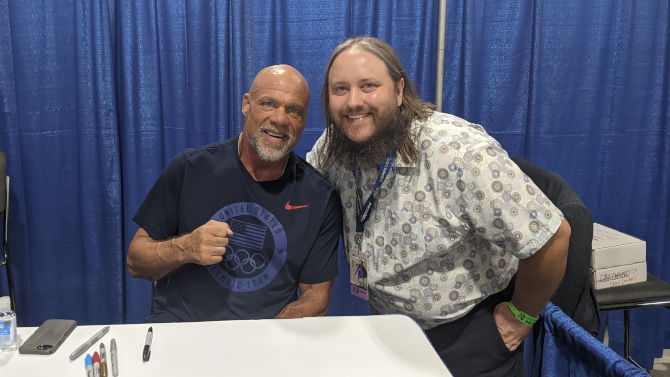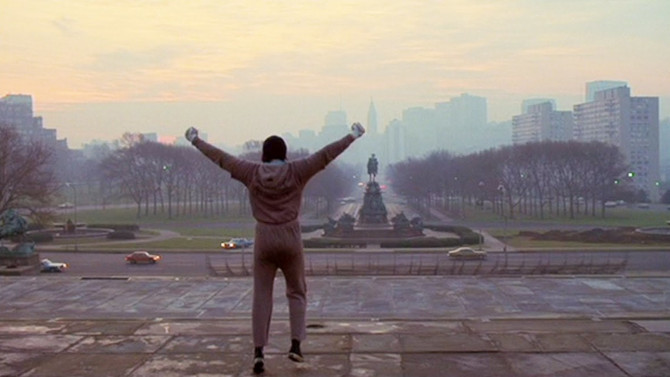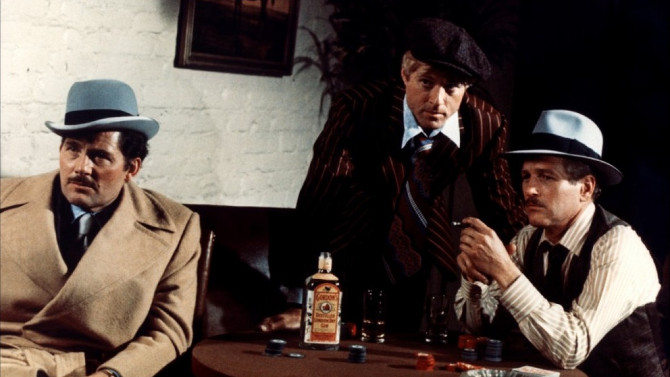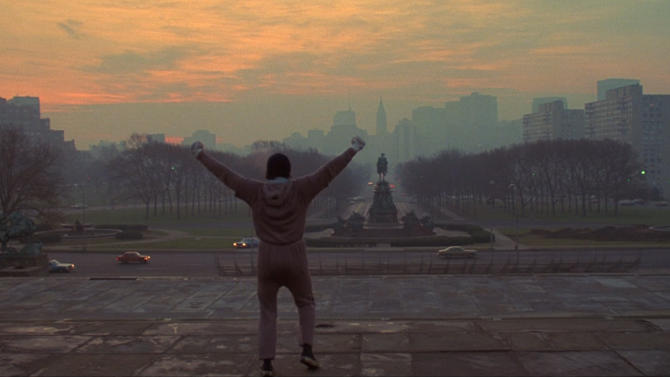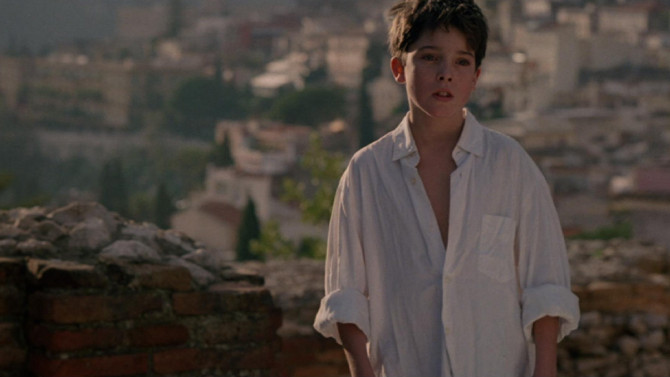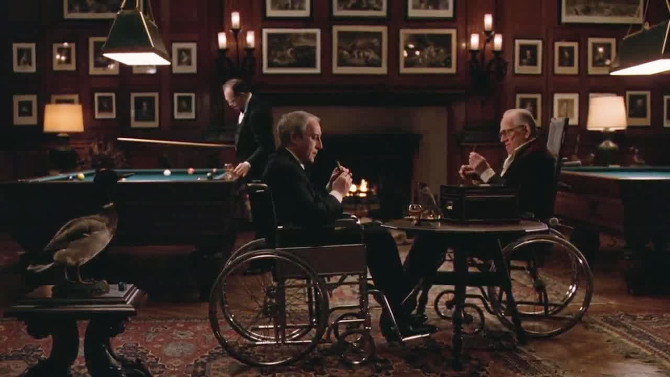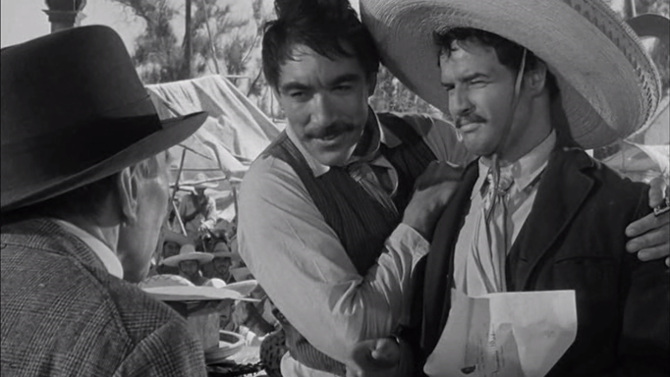Star Pick with Kurt Angle
It was an absolute pleasure to meet and get a quick interview with the great Kurt Angle this past summer in Ottawa. First making a name for himself on the amateur wrestling circuit, it all culminated with a gold medal win (with a broken neck, no less) at the 1996 Summer Olympics held in Atlanta, Georgia. The ultimate achievement for most amateur athletes, this was not the end for Angle, but only the beginning. Just a mere two years later, he had signed on to the World Wrestling Federation (now the WWE or World Wresting Entertainment), a leap that would soon find him taking professional wrestling by storm. Making his television debut in November of 1999, he was a natural, not only at the wrestling, but also on the mike.
-
Star Pick with David Ebeltoft
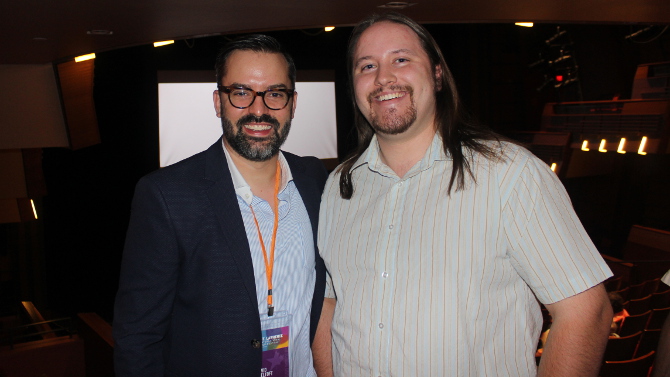 A Buzzworthy ProductionThe StingApril 18, 2017
A Buzzworthy ProductionThe StingApril 18, 2017Whether you’ve seen The Sting or not, it is nearly impossible not to recognize its main theme, titled "The Entertainer". A feel good, catchy, ragtime tune that is heard on and off from very beginning to utter end, it is Marvin Hamlisch’s reworking of the 1902 song by Scott Joplin that adds an auditory flair to the piece. It is this classic cinematic work that screenwriter David Ebeltoft, scribe of the Tribeca Audience Award Winner Here Alone, highlights as being his favourite. An up and coming writer in the business, his union with director Rod Blackhurst and producer Noah Lang (who was featured in last week’s Star Pick) seems like it is going to be a fruitful one, as the film making team have already announced two more features, You Were Once Called Queen City and North, following their first united effort – which has just been released and is doing very well in both theatres and online.
-
Star Pick with Noah Lang
 Off to See the WizardsWizardsApril 11, 2017
Off to See the WizardsWizardsApril 11, 2017Some time ago, I was fortunate enough to attend a special screening of the Tribeca Audience Award Winner for Best Picture, Here Alone, at an event held by the St. Lawrence International Film Festival in Potsdam, New York. In attendance were director Rod Blackhurst, writer David Ebeltoft and producer Noah Lang. Over the next several weeks, each of their respective Star Picks will be posted (in honour of the release of the film in theatres), each with a lengthy interview that should give you an insight into the world of movie making from three talented up and comers in the industry. Today, I introduce Noah Lang. Son of talented character actor Stephen Lang (Avatar; Don’t Breathe), Noah has had a fruitful start to his career. With a wide array of films to his name already, he also produced another feature that was shown at the St. Lawrence International Film Festival, the well received Band of Robbers, though Here Alone is what I am going to focus on today – as it has solid momentum heading into its release. Lang’s work on the project is detailed quite nicely in the interview, and it will most likely say more that I can say here with the written word, so check it out below. It will give you insight into Here Alone, a clear picture for those unsure as to what a producer actually does, an idea of the complexity of the business, as well as so much more.
-
Star Pick with Doug MacLeod
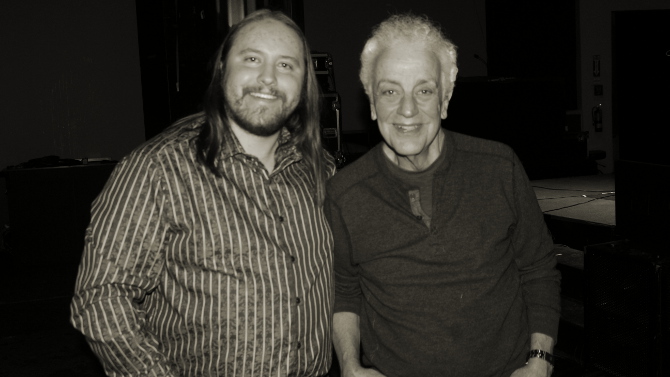 Beating the BluesRockyMarch 28, 2017
Beating the BluesRockyMarch 28, 2017Recently, I was fortunate enough to sit down with blues legend Doug MacLeod. A one man show, the acoustic maestro does it all while on stage; not only does he sing, play the guitar and stomp, but he also throws out important life lessons, tells jokes, and regales his audience with engaging stories – making him just as much a philosopher (see him live to learn of his bucket theory), storyteller, motivational speaker and stand-up comedian (though as the blues man quite cleverly pointed out, he is actually a sit-down comic – as he performs while seated). The winner of countless awards for his craft, the last few years should provide you with a good idea of his pedigree: in 2013, he took home Male Blues Artist of the Year at the Blues Blast Music Awards. Then in 2014, MacLeod won both Acoustic Artist and Acoustic Album of the Year at the Blues Music Awards, once again claiming the top prize of Acoustic Artist of the Year in 2016. This year, he has been honored with a nomination for his most recent album "Doug MacLeod – Live in Europe" – which is up for Best Historical Album, while also looking for a third win in the Acoustic Artist category. He has released an impressive 24 albums over the past thirty plus years.
-
Star Pick with Mark Valley
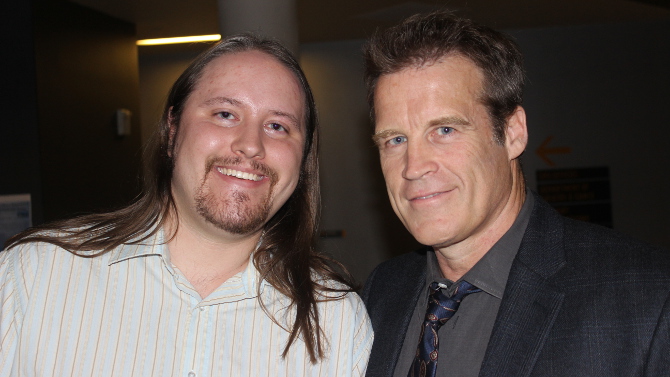 Dream WeaverLéoloMarch 21, 2017
Dream WeaverLéoloMarch 21, 2017I was fortunate enough recently to spend some time with Mark Valley. The actor has become a major player in the world of television, already having left a lasting impact in what has been termed ‘The Golden Age’ of the medium. Playing major roles on Boston Legal (Brad Chase), Human Target (Christopher Chance), Harry’s Law (Oliver Richard), Body of Proof (Tommy Sullivan), Crisis (CIA Director Widener), CSI: Crime Scene Investigation (Daniel Shaw), and so many other shows, he has developed many unique and intriguing characters over his twenty plus years in the business. If I had to choose one performance that exemplifies his craft, it would be his turn as John Scott in the science fiction drama Fringe – though he only appeared in twelve episodes (in a series that lasted five seasons), his character left a lasting impact that was felt long after his arc was over. Valley is currently working on a new series titled Famous in Love, which premieres next month. Valley has also dabbled in film, most notably in features like The Siege, Stolen, Zero Dark Thirty, Live by Night, as well as voicing The Cyclops in Shrek the Third. A proud Northern New Yorker (born in Ogdensburg), Valley has played an integral part in starting the St. Lawrence International Film Festival, set on both the American (Potsdam and Canton) and Canadian (Ottawa and Brockville) sides of the border. Having a place on the advisory board, the festival is currently expanding online, highlighting short films which deserve kudos each month.
-
Star Pick with Hayley Atwell
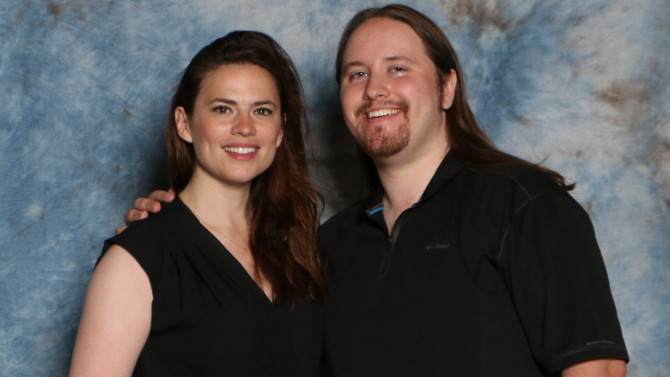 Garden State of MindBeing ThereFebruary 14, 2017
Garden State of MindBeing ThereFebruary 14, 2017Perhaps more relevant today than it was when it was released, Hal Ashby’s 1979 feature film Being There, based on Jerzy Kosinski’s 1970 novel of the same name (he also wrote the screenplay), speaks to the fickleness of fame – how, by random happenstance, one can be projected into a position of power and ‘celebrity’. Some time back, I spoke to actress Hayley Atwell. A major player in the Marvel universe, she has starred as Peggy Carter in four films, including Captain America: The First Avenger and its 2014 sequel. This spawned the critically acclaimed series Agent Carter, which sadly got cancelled after two seasons. Currently starring on the ABC show Conviction, the British star has also appeared in excellent smaller movies like 2012's The Sweeney and 2008's The Duchess, as well as the entertaining mini-series The Pillars of the Earth. When I posed my favourite question to her (i.e. her favourite film), she had two prompt responses. Speaking of her love of Bette Davis, it is fitting that one of her top films was All About Eve, mostly due to the superb performance from the iconic actress. Secondly, she spoke of the above mentioned Being There. Stating that she loved the book, she originally knew nothing about there being a movie. When she finally saw it, like the novel, it stuck with her, including Peter Sellers’ amazing portrayal as the lead character, making it one of her all-time favourites.
-
Star Pick with Sally Kellerman
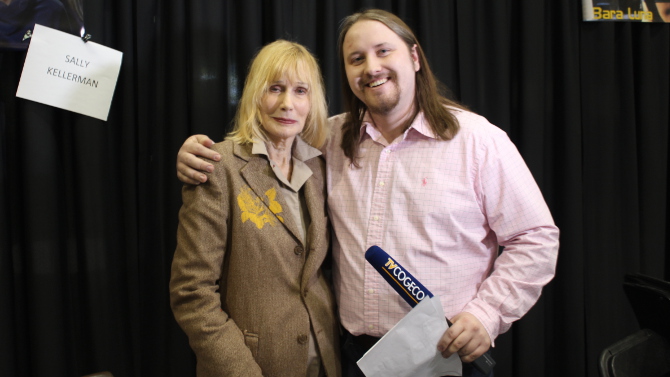 Rebel With a CauseViva Zapata!January 31, 2017
Rebel With a CauseViva Zapata!January 31, 2017There is a scene about a quarter of the way into Elia Kazan’s Viva Zapata! where our protagonist, Emiliano Zapata (Marlon Brando), has been arrested for attempting to save the life of a peasant who has been unlawfully arrested. Failing, a number of the impoverished, who witnessed the attempt, plead for Zapata to hide in one of their homes. Moving on, he is soon arrested, and the villagers clap with whatever they have in their reach; working tools, rocks or any other implements, as a way to show their support for the hero as he is ushered away. As the officers transport the man through the wilderness, people pour out of the mountainous forest – soon, droves are leading, following and walking beside the police procession. Eventually overwhelmed by the masses, they free the man, aware that they will never be able to manage the united crowd. It is this scene that perhaps best exemplifies the film. A heartfelt sequence, it shows that solidarity in the face of oppression, that boldly standing up for what is right, is a righteous, albeit difficult stance.

